Sacred and Social: The Dual Role of Coffee in the Middle East
Historical Origins of Coffee in the Middle East
The Discovery of Coffee in Yemen
The story of coffee begins in the rugged highlands of Yemen, where it is believed to have been first discovered in the 9th century. According to legend, a goat herder named Kaldi noticed his goats behaving energetically after eating the berries of a certain shrub. Curious, he sampled the berries himself and experienced a similar invigorating effect. This discovery eventually led to the cultivation of coffee plants in the region, particularly in the area of Mocha, which would later become synonymous with coffee trade.
Spread of Coffee Culture Across the Region
From Yemen, coffee quickly spread to other parts of the Middle East, including Mecca, Cairo, and Damascus. The beverage became a staple in social gatherings, where people would come together to drink coffee and engage in conversation. By the 15th century, coffee houses, known as qahveh khaneh, began to appear in cities across the region. These establishments became centers of intellectual exchange, where scholars, merchants, and artists would gather to discuss ideas and share news.
Early Adoption in Islamic Traditions
Coffee’s integration into Islamic traditions is a fascinating aspect of its history. Initially, there was some debate among Islamic scholars about whether coffee was permissible under Islamic law. However, it was eventually accepted, and coffee drinking became associated with rituals such as the iftar meal during Ramadan. The beverage was also used by Sufi mystics to stay awake during long nights of prayer and meditation. This early adoption helped cement coffee’s role as both a sacred and social drink in the Middle East.
Coffee as a Sacred Ritual
Role in Sufi Practices
In the mystical traditions of Sufism, coffee has long been revered as a tool for spiritual awakening. Sufi dervishes would consume coffee to sustain themselves during their prolonged periods of dhikr, or remembrance of God. The brew was believed to sharpen the mind and cleanse the soul, allowing practitioners to achieve a heightened state of consciousness. The act of drinking coffee became intertwined with the pursuit of divine connection, a ritual that transcended mere consumption and entered the realm of sacred practice.
Symbolism in Religious Ceremonies
Beyond its physical properties, coffee carries profound symbolism in religious ceremonies across the Middle East. The dark hue of the drink is often likened to the mysteries of the divine, while its warmth represents the light of spiritual enlightenment. In many traditions, the sharing of coffee is a sign of hospitality and unity, bringing people together in a shared moment of reverence. Its preparation and offering are seen as acts of devotion, a testament to the sacred bonds that connect individuals to each other and to the divine.
Preparation and Serving in Sacred Contexts
The preparation of coffee in sacred contexts is a meticulous process, steeped in ritual and intentionality. Here are the key steps often observed:
- Selecting the finest beans, often ground by hand to ensure purity.
- Brewing the coffee over open flames, symbolizing the transformation of the mundane into the sacred.
- Infusing the brew with spices like cardamom, which are believed to carry spiritual significance.
When served, the coffee is often accompanied by words of blessing or gratitude, further elevating the experience. The act of serving is performed with humility and care, a gesture that honors both the recipient and the divine presence.
Coffee in Social Gatherings
The Importance of Coffee in Hospitality and Bonding
In the Middle East, coffee is far more than a beverage; it is a symbol of generosity and a cornerstone of social interaction. Offering coffee to guests is a deeply rooted tradition that reflects the host’s respect and warmth. It is a gesture that fosters connection, encouraging conversation and mutual understanding. The act of sharing coffee is an intimate experience, often marking the beginning of friendships or the strengthening of familial ties.
Moreover, coffee plays a pivotal role in bridging gaps between individuals, whether they are neighbors, acquaintances, or strangers. It serves as a universal language that transcends cultural and generational divides, creating a sense of unity and camaraderie.
The Role of Coffee in Traditional Majlis Gatherings
Traditional majlis gatherings are a quintessential element of Middle Eastern culture, and coffee is an indispensable part of these events. The majlis, a space for dialogue and deliberation, is where community members come together to discuss important matters, share stories, or simply enjoy each other’s company. Coffee is served as a gesture of hospitality, symbolizing the host’s willingness to listen and engage.
In these settings, coffee is not merely a drink but a ritualistic element that sets the tone for the gathering. It encourages participants to slow down, savor the moment, and engage in meaningful conversations. The aroma of freshly brewed coffee often permeates the air, creating a welcoming atmosphere that invites openness and connection.
Etiquette of Serving and Drinking Coffee
The serving and drinking of coffee in the Middle East is governed by a set of time-honored customs that reflect the region’s emphasis on respect and tradition. The host typically prepares the coffee in a dallah (a traditional Arabic coffee pot) and serves it in small, handleless cups known as finjan. The process is as important as the outcome, with each step carried out with care and precision.
- Pouring: Coffee is poured from the dallah in a single, graceful motion, ensuring it reaches the cup without spillage.
- Receiving: Guests accept the cup with their right hand, holding it delicately as a sign of appreciation.
- Drinking: Coffee is sipped slowly, often accompanied by dates or other sweets to balance its rich flavor.
It is considered impolite to refuse coffee when offered, as it may be interpreted as a rejection of the host’s hospitality. Similarly, signaling that one has had enough is done subtly, often by gently shaking the cup when the host offers a refill.
The Art of Coffee Preparation
Traditional Methods Using a Dallah
The dallah, a distinctive Arabic coffee pot, is central to the traditional preparation of Middle Eastern coffee. Crafted from brass or stainless steel, its elegant spout and handle are designed for precision and grace. The process begins with finely ground coffee beans, often roasted to a light or medium level, ensuring a nuanced flavor. Water is heated in the dallah, and the coffee grounds are added, simmering gently to extract their essence. The result is a rich, aromatic brew, typically served in small, handleless cups called finjan. This method is not just a technique but a ritual, symbolizing hospitality and connection.
Spices and Flavors Unique to Middle Eastern Coffee
Middle Eastern coffee is renowned for its bold use of spices, which elevate the beverage to an aromatic experience. Cardamom is the most iconic addition, imparting a warm, slightly sweet flavor. Other spices such as cloves, saffron, and cinnamon are also commonly used, each adding a layer of complexity. These spices are often ground and mixed with the coffee beans or infused into the brew during preparation. The interplay of flavors creates a beverage that is both invigorating and deeply rooted in cultural tradition.
Modern Adaptations and Innovations
While traditional methods remain cherished, modern adaptations have brought innovation to Middle Eastern coffee. Contemporary cafes and home brewers are experimenting with new techniques, such as cold brewing and espresso-based drinks, while retaining the essence of the original flavors. Specialty coffee shops are also introducing spice blends tailored to modern palates, offering a fusion of tradition and innovation. Additionally, pre-ground spice-infused coffee packets and ready-to-drink options are making this cherished beverage more accessible to a global audience. These adaptations ensure that the art of Middle Eastern coffee continues to evolve, bridging the past and the present.
Cultural Significance of Coffee
Symbol of Generosity and Respect
Coffee holds a revered place in Middle Eastern culture as a symbol of hospitality and mutual respect. Serving coffee to guests is a deeply ingrained tradition, reflecting the host’s generosity and warmth. The intricate process of preparing and presenting coffee—often accompanied by dates or sweets—underscores its role in fostering social bonds. To decline a cup of coffee is considered impolite, as it is seen as a gesture of goodwill and connection.
Coffee in Poetry and Literature
The cultural significance of coffee extends into the realm of art and expression. Middle Eastern poets and writers have long celebrated coffee in their works, using it as a metaphor for social interaction, intellectual exchange, and even spiritual awakening. For example, the 16th-century Persian poet Hafez often alluded to coffee as a stimulant for thought and creativity. Similarly, Arabic literature is replete with references to coffee houses as vibrant hubs of conversation and storytelling. As one proverb states, Where there is coffee, there is discourse.
Influence on Regional Identity
Coffee is not merely a beverage in the Middle East—it is a cornerstone of regional identity. The traditional preparation methods, such as Turkish coffee or Arabic qahwa, are deeply tied to cultural heritage and pride. Coffee rituals, from the roasting of beans to the serving in ornate pots, are passed down through generations, preserving a sense of continuity and belonging. Moreover, the distinctive flavors and aromas of Middle Eastern coffee serve as a marker of identity, differentiating it from other global coffee traditions.
Modern-Day Coffee Culture
Preservation of Traditional Practices
In the Middle East, the reverence for coffee as a cultural cornerstone remains unwavering. Traditional practices, such as the meticulous preparation of Arabic coffee (qahwa), continue to be passed down through generations. The use of Dallah pots and the ceremonial serving of coffee to guests symbolize hospitality and respect, ensuring that these age-old customs endure in modern households. Communities actively work to preserve these rituals, recognizing their significance in maintaining cultural identity.
Rise of Coffee Shops and Modern Trends
While tradition holds firm, the Middle East has also embraced the global coffee revolution. The rise of coffee shops in cities like Dubai, Beirut, and Amman reflects a growing appetite for modern coffee experiences. International chains coexist with local cafes, offering everything from flat whites to innovative blends infused with regional flavors like cardamom and saffron. This fusion of global trends and local tastes has created a vibrant coffee scene that appeals to both the younger generation and coffee connoisseurs.
Balancing Tradition and Modernity
The challenge lies in harmonizing tradition with modernity. Many coffee shops now offer Arabic coffee alongside contemporary espresso-based drinks, creating a bridge between the past and the present. Social media plays a pivotal role, with platforms like Instagram showcasing both the elegance of Dallah pots and the artistry of latte designs. This balance ensures that while innovation thrives, the cultural essence of coffee remains intact, fostering a dynamic yet respectful coffee culture.
Conclusion: The Enduring Legacy of Coffee
Coffee has long been more than a mere beverage in the Middle East; it is a profound cultural symbol, a social lubricant, and a sacred ritual. Its dual role as both a spiritual elixir and a communal connector has left an indelible mark on the region’s history and daily life. As we reflect on its journey, it becomes clear that coffee is not just a drink but a testament to human connection and tradition.
Recap of Coffee’s Dual Role
From its sacred origins in Sufi monasteries to its role in majlis gatherings, coffee has bridged the spiritual and the social. It has been a tool for meditation, a symbol of hospitality, and a medium for dialogue. Its preparation and consumption are steeped in rituals that reflect values of respect, generosity, and unity. This duality underscores its enduring significance in Middle Eastern culture.
Its Continued Relevance in Middle Eastern Society
Even in the modern era, coffee remains deeply embedded in the fabric of Middle Eastern life. Traditional coffeehouses coexist with modern cafes, serving as spaces where the old and new converge. Whether in bustling cities or quiet villages, coffee continues to foster connections, preserve traditions, and inspire creativity. Its relevance is a reminder of the timeless power of shared experiences.
Call to Explore and Experience the Culture Firsthand
To truly understand the legacy of Middle Eastern coffee, one must immerse themselves in its culture. Visit a traditional coffeehouse, participate in a gahwa ceremony, and engage in the stories that unfold over a cup of coffee. By doing so, you not only honor its rich history but also contribute to its ongoing narrative. Coffee is more than a drink; it is an invitation to connect, reflect, and celebrate.
FAQ
- Why is coffee considered sacred in the Middle East?
- Coffee’s origins are deeply tied to Sufi practices, where it was used as a tool for spiritual awakening and meditation. Its preparation and consumption are seen as acts of devotion and hospitality.
- How does coffee foster social connections?
- In Middle Eastern culture, coffee is often shared in social gatherings, symbolizing generosity and unity. It serves as a medium for dialogue, storytelling, and strengthening bonds.
- Can I experience traditional coffee culture as a visitor?
- Absolutely! Many regions in the Middle East welcome visitors to participate in traditional coffee ceremonies and explore local coffeehouses, offering an authentic glimpse into the culture.
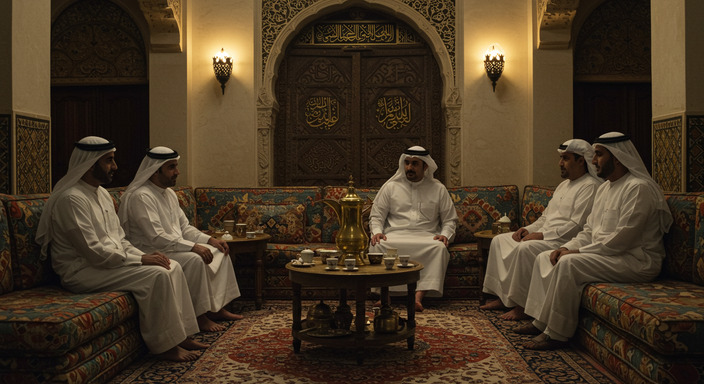
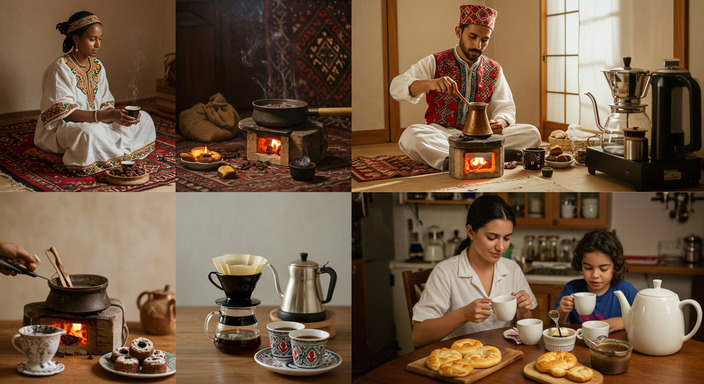
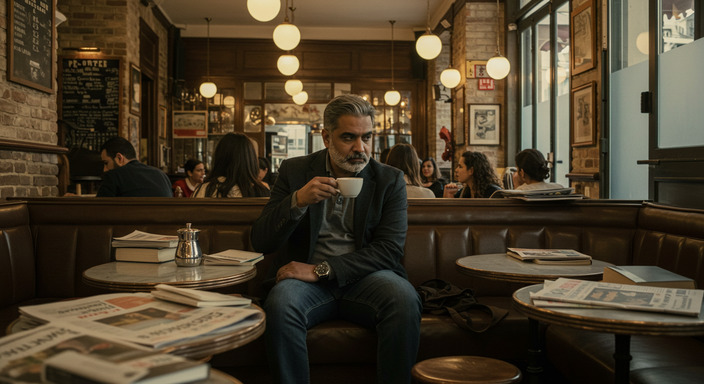
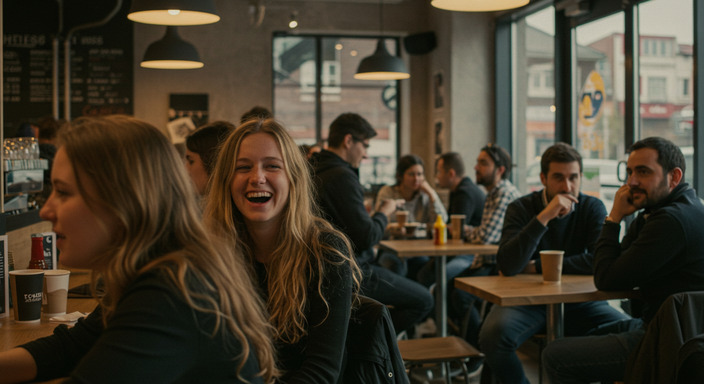
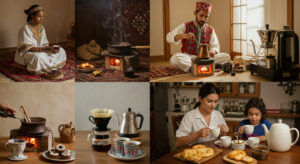


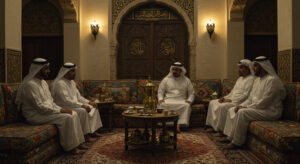
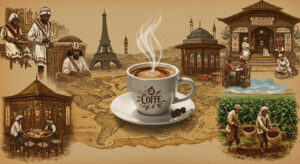




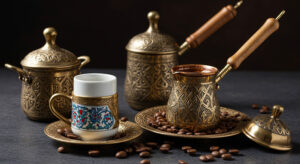
Post Comment